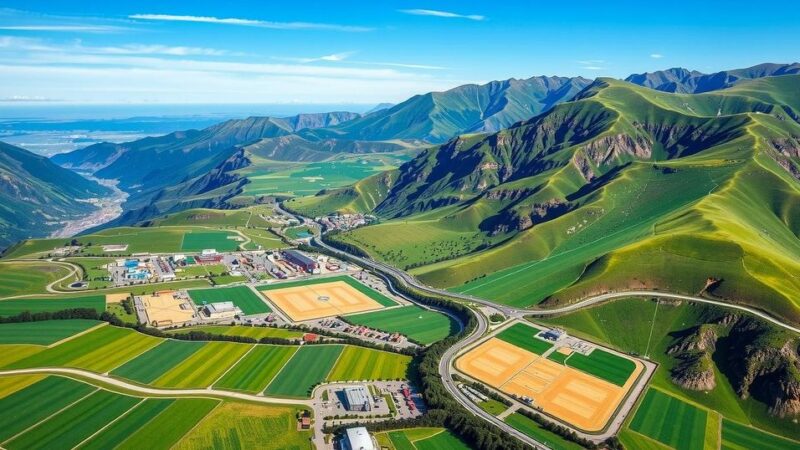In Mali, following a series of coups, military juntas have intensified their campaign against journalists and free media. Journalist Mohamed Attaher Halidou of Joliba TV stood against governmental pressures, advocating for press freedom despite facing warnings and a two-month suspension. Public support for the station reflects a vital pushback against censorship, but subsequent threats to its operations highlight the ongoing dangers faced by independent media in the Sahel region.
In the Sahel region, particularly Mali, military juntas have increasingly targeted journalists and advocates of democracy, particularly following a series of coups that have transformed the political landscape. The suspension of the largest French-run broadcasters in 2022 was met with mixed reactions; while some viewed it as a victory over colonial influence, others feared the implications for freedom of the press. Mohamed Attaher Halidou, a determined journalist at Joliba TV, was one of the few who voiced his concerns. He emphasized that silencing foreign media would inevitably lead to a suppression of local journalism, highlighting the essential role of the press in a democracy as an impartial informer.
Since the military regime took power two years ago, journalists have faced significant threats, including harassment and imprisonment. After Colonel Assimi Goïta led a coup ousting the elected president, many journalists shifted their focus to align with those in power, fearing reprisals. In contrast, Attaher chose to scrutinize the military’s authority and stressed the necessity of maintaining journalistic integrity. Despite concerns for his safety, he remained resolute in his commitment to truthful reporting.
The precarious situation escalated when Joliba TV received a warning from the media authority regarding an interview featuring a former minister accused of corruption. The government claimed the interview lacked balance and fairness, threatening penalties for the station if future transmissions did not comply with their standards. Undeterred, Attaher defended the interview in response and continued to foster an environment of questioning authority among his students.
As the pressure mounted, Attaher faced a second warning which was publicly disseminated on social media, criticized for airing allegedly defamatory content. This letter highlighted the junta’s increasing oppression of the media, marking a significant moment in the crackdown on free speech. Attaher’s courageous journalism faced threats from the regime, as he publicly condemned the government’s approach and warned against the rise of a “dictatorship of one-track thinking.”
The public’s reaction to the warnings was unexpectedly supportive, with numerous activists and citizens rallying behind Joliba TV. The station’s reputation as a fair and independent voice prompted widespread opposition to the government’s actions. Following public outcry, the media authority suspended Joliba TV for two months but was later coerced into allowing the station to resume broadcasts due to domestic and international pressure, highlighting the importance of public opinion in maintaining journalistic freedom.
However, the situation took a darker turn when the government objected to a discussion concerning the political climate in neighboring Burkina Faso, ultimately resulting in a summons for Joliba’s executives. Despite solidarity from other media outlets, the station was met with a six-month suspension. Attaher now grapples with the ominous reality of his future in Mali and considers the possibility of leaving amidst rising authoritarianism in the region.
This unfolding scenario illustrates the precarious nature of media freedom in Africa’s Sahel, where the constraints on expression have significant implications for democracy. The ongoing story of Joliba TV highlights the struggle for independent media and the potential ramifications of a closing space for dissent. The evolving struggle of journalists like Attaher reflects broader issues of governance, freedom, and the power dynamics that characterize this volatile region.
The narrative of Mohamed Attaher Halidou and Joliba TV underscores the perilous circumstances surrounding journalism in Mali, particularly in the wake of military coups. The undeterred commitment of Attaher to uphold journalistic integrity amidst threats highlights a crucial struggle for media freedom. The fluctuating responses from the public to government actions signify a glimmer of hope for independent media, revealing the importance of sustained advocacy for democratic principles. The unfolding situation remains a critical reflection of the larger challenges faced by societies grappling with authoritarianism.
Original Source: www.washingtonpost.com






